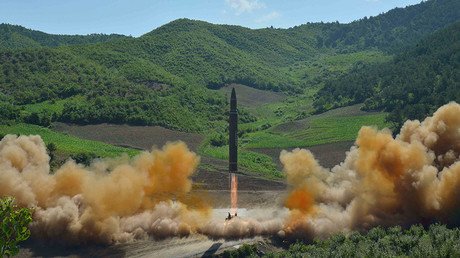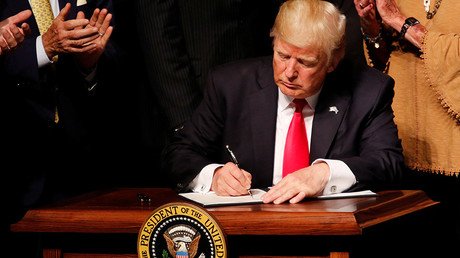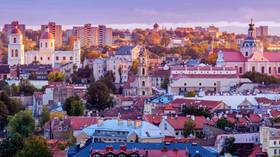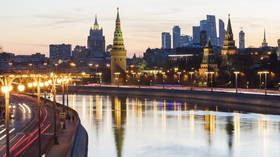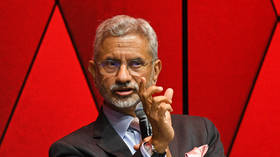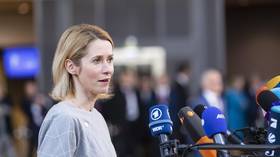North Korea sanctions: The many attempts to punish Pyongyang
The UN Security Council (UNSC) has once again attempted to pressure North Korea (DPRK) over its nuclear and missile tests by approving a seventh round of sanctions in 11 years.
The UN’s previous six attempts have apparently failed to properly affect Pyongyang, which claimed to test-fire two intercontinental ballistic missiles (ICBMs) in July. The UNSC responded to those tests with fresh sanctions, which were unanimously adopted by the 15-member body on Saturday.
READ MORE: UN Security Council approves new sanctions against N. Korea
The new restrictions seem tougher than ever before, as they close the loopholes of the previous resolutions and target the North’s key revenue sources – the export of coal, iron, and iron ore among others. The UNSC resolution also imposes a full ban on the export of lead, lead ore, and seafood, prohibits increasing the total number of North Korean workers abroad and creating or investing in joint ventures with the North.
How sanctions can affect North Korea
Pyongyang is to lose around a third of its annual export revenues, which reportedly amount to $3 billion.
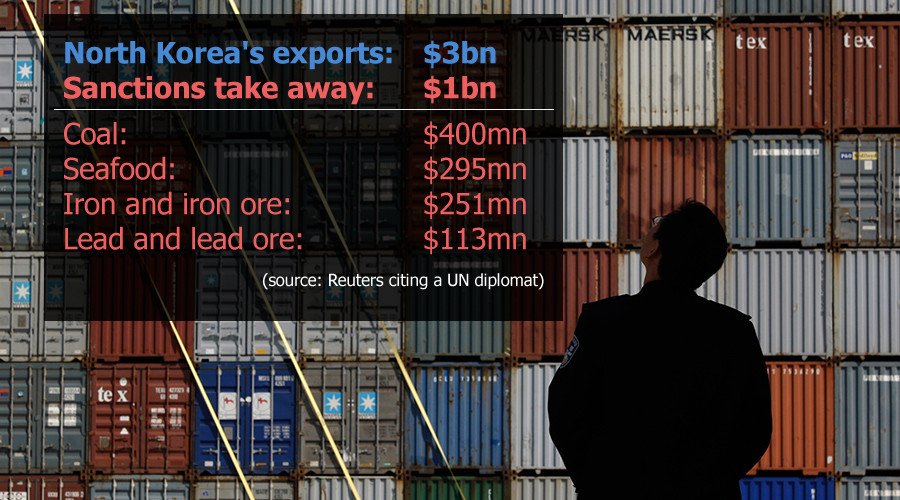
The ban on coal exports will apparently be the heftiest loss for the North Korean budget, causing up to $400 million in losses – that is the most North Korea was allowed to export to UN member states under the previous UNSC resolutions.
The year before that, the North exported $950 million worth of coal, according to the Observatory of Economic Complexity, and was still left with a negative trade balance of $640 million.
READ MORE: China urges N. Korea to abide by UN sanctions, stop missile tests
One of the few significant unaffected exports left to Pyongyang is clothes, worth around $400 million, according to the Observatory.
It is hard to estimate the real economic impact of the sanctions, with North Korea’s reclusiveness and the lack of official reports on its economy. The country is considered very poor, but it “has enjoyed fairly stable economic growth in recent years,” according to a Russian specialist in Korean studies, Andrey Lankov. He also estimates that the North’s annual economic growth is between 1.5 percent and 5 percent.
Talks & punishments with little result
Despite imposing a new round of restrictive measures, the UN seeks to resume the ‘Six Party Talks.’ The meetings between North Korea, the US, Russia, China, South Korea, and Japan were aimed to discuss denuclearization of the Korean Peninsula in 2003, after Pyongyang pulled out of the Nuclear Non-Proliferation Treaty (NPT). The talks managed to bring Pyongyang to the negotiating table and even to halt its nuclear program for a while in exchange for fuel aid. However, in 2009, the North withdrew from the negotiations.
READ MORE: ‘Interpreter asked: What is Facebook?’ RT crew shares experiences filming in N. Korea
The talks did not stop the DPRK from carrying out its first nuclear test in 2006. The launch was followed by the UN’s first attempt to use sanctions against the North’s nuclear program.
Within 11 years, the UNSC came up with seven resolutions against North Korea, including the latest one. Here is a timeline of the previous rounds of sanctions.
Round 1: 2006. The DPRK conducts its first nuclear weapon test. The UN responds with an arms embargo and a ban on imports of luxury goods to the country.
Round 2: 2009. After the North’s second nuclear test, the sanctions are tightened to include more goods, people, and entities. There are calls to inspect and destroy any cargo on ships suspected of violating the arms embargo.
Round 3: January 2013. In response to a satellite launch, sanctions against Pyongyang are strengthened further and more people and entities are put on the black list.
Round 4: March 2013. The North’s third nuclear test takes place. Attempts are made to exclude Pyongyang from international banking systems by hindering various money transfers, besides further expanding the list of materials covered by previous rounds.
Round 5: March 2016. North Korea conducts its fourth nuclear test and launches another satellite. UN member states are prohibited from hosting North Korean financial institutions and from opening such institutions and bank branches in North Korea.
Round 6: November 2016. After the fifth nuclear test by North Korea, the UN toughens previous sanctions even further, caps exports of coal from the North at a total of $400 million to all member states combined. It also bans exports of copper, nickel, silver and zinc.
How is this time different?
The latest two rounds of sanctions left a loophole for exports under “livelihood purposes.” With a closed country like North Korea, it is virtually impossible to make certain how the money from exports is spent, making this line exploitable by the North’s trade partners – such as China, considered Pyongyang’s main economic lifeline. Saturday’s seventh round cuts it off.
READ MORE: ‘US-N.Korea relationship problems can’t be outsourced to China’
This should have a real impact on North Korea, but it is doubtful that it will make the North halts its nuclear program, according an expert from the UK-based Crisis Research Institute, Mark Almond, who spoke to RT.
“The North Koreans have defied the UN so often. If they were to back down now, it would be a very dangerous situation for the regime… On the other hand, what may be the case, with China and Russia on board the North Koreans can be persuaded to gradually lower the temper of the crisis,” Almond said.
Almond also noted that more missiles tests can still come from the North, as “Pyongyang may decide to defy all the members of the Security Council,” but if North Korean leader Kim Jong-un is wise, he will refrain from more provocations for a while.
Meanwhile, the sanctions could even improve the life of North Koreans, as all those exports will be used for domestic needs, the expert believes.
Another expert RT spoke to, Gregory Elich, a member of the Advisory Board of the Korea Policy Institute, believes not only will the sanctions not help common North Koreans, they won’t be effective at pushing the regime to dialogue, either.
“If you are thinking in terms of dialogue, it makes dialogue even less likely than before. But if you mean being effective as imposing a collective punishment on entire North Korean population and bringing about an economic collapse – that may be effective,” Elich told RT, adding the likelihood of a conflict and tensions will only increase.
